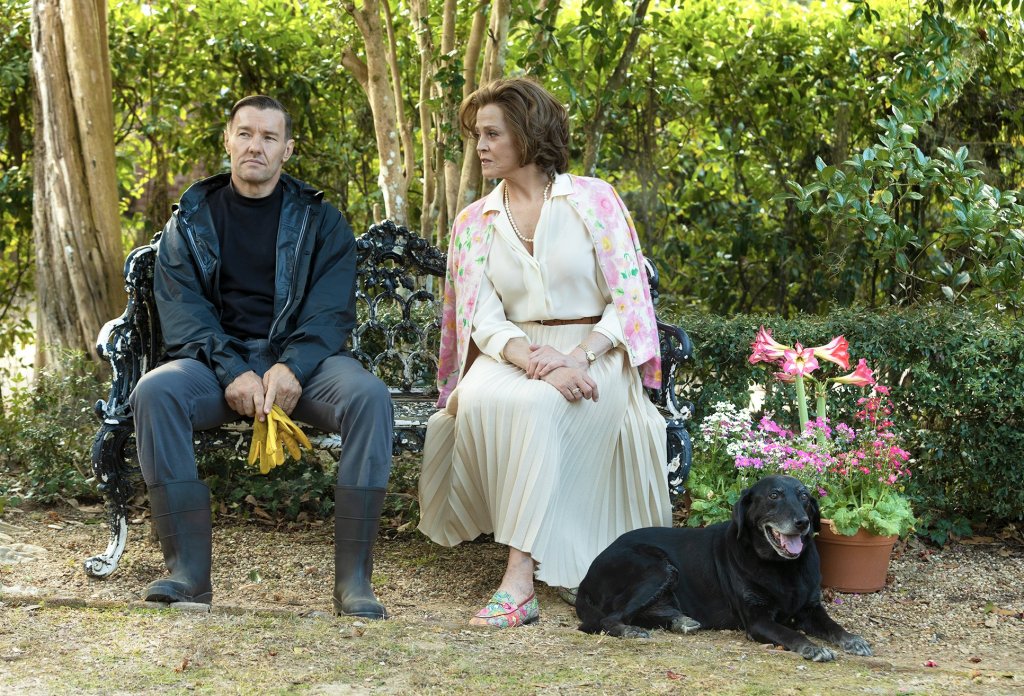Spoiler alert: Nobody dies in an orgiastic and presumably purifying violent climax in Paul Schrader’s fascinating new film Master Gardener. That’s somewhat unusual for Schrader, who set the template for his thematic obsession with his script for Taxi Driver in 1976. From that point forward, Schrader has created a gallery of redemption-seeking outsiders prone to moral self-torture and potentially violent resolutions.
Following Travis Bickle/Robert De Niro as a combustible cabby in Scorsese’s landmark Taxi Driver, Schrader got busy as writer-director, bringing us Richard Gere as a complex gigolo in American Gigolo, Willem Dafoe as a dealer seeking the straight life in Light Sleeper, and Ethan Hawke as an inwardly imploding priest in Schrader’s masterpiece, First Reformed. Now comes Joel Edgerton as a seemingly centered and botany-obsessed gardener in the latest. Underscore seemingly centered.
As Narvel, Edgerton — with a quiet composure Schrader definitely pulls out of the blockbuster action figure — is in charge of an elite garden owned by an affluent dowager (played with diabolical glee by Sigourney Weaver). The peaceable property and relationship are destabilized by the arrival of her young, half-Black niece Maya (an impressive turn from newcomer Quintessa Swindell), in need of rescue from a hard, drug-addled life. Maya and the master gardener establish a bond and a deepening connection, sharing more vulnerabilities and secrets than initially suspected.
To be more specific about the above spoiler alert, nobody dies in the time frame of the film story. What happens, via flashbacks, in our anti-hero’s backstory is a whole ‘nother matter, which slowly unfolds and reveals the man he was before gardening saved his life. Our hero has found deliverance and salvation in the secret life of plants and the fine art of gardening. But the toxic weeds of his past remain pesky. Despite the brewing tensions and bursts of violence, Master Gardener is also a surprisingly meditative film more deeply steeped in matters and the history of gardening than any feature film in recent memory. Once again, Schrader — who, like Terrence Malick, happily weaves themes of radical Christian beliefs into distinctive cinematic work — strikes a strange but effective balance of tension and redemption. He’s still got a certain kind of master filmmaker touch, nearly 50 years post–Travis Bickle.

